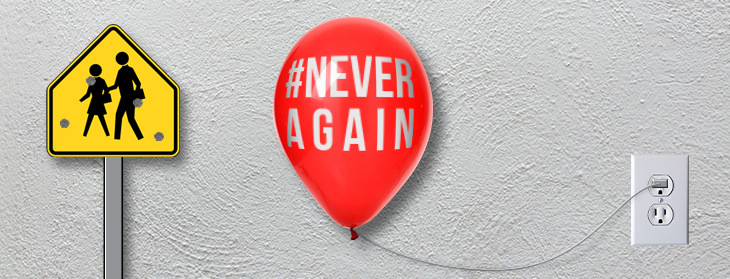
Today’s iGen teenagers may be better equipped for the world than we think
Posted On January 7, 2019
You’ve seen the students from Florida’s Marjory Stoneman Douglas High on TV since the terrible shooting at their school last spring. Regardless of what you think of the stance they’ve taken on gun control, it’s difficult not to admire the initiative these teenagers have shown in organizing the #NeverAgain movement and the way they’ve handled themselves in the face of harsh criticism after placing themselves in the public eye.
Is this what we expected from iGen? Weren’t they supposed to be an even more entitled, self-absorbed bunch of social media addicts than we perceive millennials to be?
A recent article in the New York Times points to the #NeverAgain movement to question whether technology – and in particular, the ever-present smartphone – is having the opposite effect on today’s teenagers than we think.
While iGen has a tendency to avoid risky behavior such as drinking, smoking and sex – a phenomenon we looked at in a blog last year— some worry that the isolation that comes with a preference to smartphones over face-to-face communication has led to increased rates of depression and suicide in today’s teens.
But Don Tapscott, author of “Grown Up Digital,” argues that iGen teens are actually better communicators because of growing up with smartphones, not worse.
“They didn’t grow up being the passive recipients of somebody else’s broadcast,” Tapscott tells the Times. “They grew up being interactors and communicators. In the 1960s we had a generation gap. What we have today is a generation lap – they are lapping their parents on the digital track.”
The Marjory Stoneman Douglas students seem to personify this view. They’ve harnessed the power of social media to fuel their movement and they’ve been unafraid of the inevitable backlash that comes with taking a public stand on a divisive topic. That takes initiative, intelligence and courage.
Julie Lythcott-Haims, a former dean of freshmen at Stanford and author of “How to Raise an Adult,” says the vision exhibited by iGen teens like those in the #NeverAgain movement gives her hope that the generation is not only not suicidal, but may be poised to do some great things.
“We don’t know who they will be in their 20s, but already they have agency, the sense of your own existence, your own right to make decisions and your responsibility for outcomes and consequences,” she tells the Times. “That’s what we need to have to be mentally well. I think these folks could turn out to be not just leaders, but to be a generation that we look back on and end up calling one of the greatest.”
Yes, they’ll eventually have to come out of their bedrooms to do that. But when they do, watch out world. They may be better equipped to handle you than we seem to think.